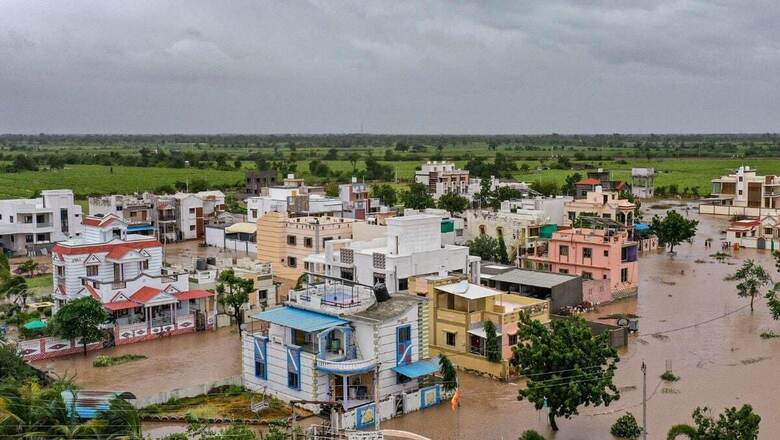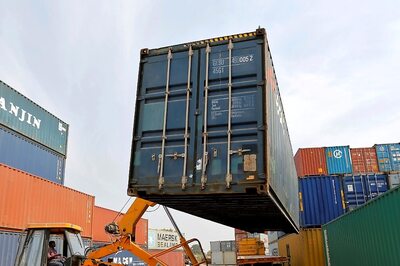
views
The Indian Meteorological Department (IMD) warned of a cyclonic storm in the Kutch region even as rains abated in most parts of Gujarat on Friday morning. Several towns and villages witnessed water logging due to swollen rivers, officials said. According to the weather agency, a deep depression that triggered intense rains and floods in Gujarat intensified into cyclone Asna off the coast of Kachchh and the adjoining areas of Pakistan on Friday.
Due to the phenomenon, four places in the state received 15 mm to 26 mm of rain between 6:00 am and 2:00 pm, while other parts remained dry or received light showers, the State Emergency Operations Centre (SEOC) said.
According to officials, several parts of Mandvi town of Kutch district remained inundated, and some parts of Bhuj, Anjar and Nakhatrana towns were waterlogged.
Cyclone Asna
Given by Pakistan, the name Asna means “the one to be acknowledged or praised”.
The deep depression over the Kutch coast and adjoining areas of Pakistan and the Northeast Arabian Sea moved westward with a speed of 6 kmph during the past 6 hours and intensified into cyclonic storm Asna. It will continue moving nearly west-northwestwards over the northeast Arabian Sea, away from the Indian coast, over the next two days, the weather department stated.
Madhavan Nair Rajeevan, former secretary of the Ministry of Earth Sciences, said it was surprising to see the weather system over the North Arabian Sea intensifying into a cyclonic storm.
“During our training we learnt from our teachers and textbooks that the North Arabian sea becomes colder during the monsoon season due to ocean upwelling and no weather system can intensify over there,” he posted on X.
“How does this happen? The Arabian sea is warming up as a part of global warming. But we need to understand the mechanisms better. It is high time we need to revise meteorology textbooks describing the dynamics of monsoon weather systems by incorporating this kind of new information and insights. We need to be better prepared for climate change adaptation strategies,” he said.
Over 26 people lost their lives in rain-related incidents in Gujarat over the past three days. More than 18,000 people have been relocated, and around 1,200 rescued from flood-affected areas in the state.




















Comments
0 comment